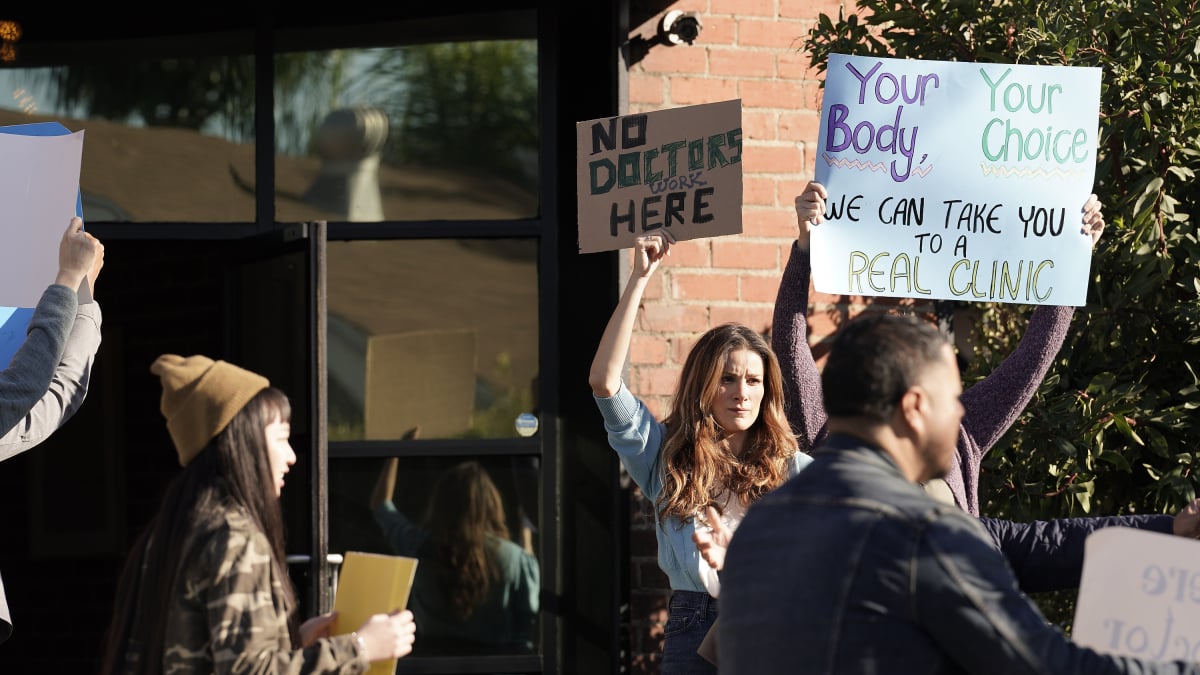Entertainment
Yelp and Texas Attorney General at odds over disclosing anti-abortion centers

Texas’ tense reproductive health environment is once again under legal scrutiny, as Texas Attorney General Ken Paxton and business review site Yelp have both filed suits over the site’s description of anti-abortion centers, also known as “crisis pregnancy centers.”
On Sept. 27, Yelp filed a preemptive lawsuit against the Attorney General of Texas, citing that the threatened prosecution of Yelp for its statements about anti-abortion centers would violate the First Amendment. Paxton filed a lawsuit against Yelp on Sept. 28 due to the company’s process of alerting users when they’re visiting the site of a known anti-abortion center, alleging that Yelp’s language misled consumers about anti-abortion centers’ offerings and violated the Texas Deceptive Trade Practices Consumer Protection Act.
On Oct. 2, Yelp filed a motion in its original lawsuit in federal court, seeking an order “prohibiting the Attorney General from taking actions to deter Yelp from publishing truthful statements about Crisis Pregnancy Centers,” according to the company.
“The First Amendment prevents government officials like Mr. Paxton from suppressing true statements they may dislike – whether that be just in Texas or, in the case of Mr. Paxton’s prosecution of Yelp, anywhere that Yelp applies the notice,” the company wrote in a statement. “The accurate description of businesses on Yelp is important because it helps consumers find the businesses they’re looking for, which also applies to crisis pregnancy centers. We’ve also invested in better matching users who search for abortion care with reproductive health services that actually offer abortions, and making it less likely they will see crisis pregnancy centers that don’t.”
Advocates have long called out the dangers of the proliferation of anti-abortion centers, which claim to offer medical services and reproductive healthcare but predominantly deter pregnant people from receiving abortions. Many lawmakers in states with abortion bans tout these centers as solutions to healthcare gaps and inadequate prenatal and postpartum care, despite the fact that the majority of staff at such centers are often unlicensed medical providers. In 2022, a TIME investigation also found that “crisis pregnancy centers” posed an additional privacy risk, as unlicensed facilities aren’t bound federal health data privacy laws.
According to data from the Guttmacher Institute and Equity Forward, 12 states led by GOP-majority legislatures have passed 25 bills providing at least $250 million in new taxpayer funds or tax credits for “crisis pregnancy centers” in 2023 — these facilities now outnumber abortion clinics 3-to-1, the Washington Post reports.
Yelp had began editing business pages with relevant information on reproductive health and abortion in 2018, starting with a site-wide re-categorization of certain businesses that don’t provide abortion services as either “Crisis Pregnancy Centers” or “Faith-based Crisis Pregnancy Centers.”
In August 2022, following the reversal of privacy protections under Roe v. Wade, Yelp expanded this categorization effort and introduced an additional consumer alert for users accessing pages labeled as “crisis pregnancy centers.” The alert read:
This is a Crisis Pregnancy Center. Crisis Pregnancy Centers typically provide limited medical services and may not have licensed medical professionals onsite.
At the time, Yelp said the alert was an effort to protect its users, “which includes better matching them with reproductive health services that actually offer abortions when they are searching for abortion services and making it less likely they will see crisis pregnancy centers that don’t.”
Anti-abortion officials took notice of Yelp’s changes quickly. In February 2023, a coalition of 24 state attorneys general penned a letter asserting that Yelp’s notice was misleading and an act of discrimination against “crisis pregnancy centers,” writing, “these benignly labeled ‘re-categorizations’ and ‘Consumer Notices’ constitute a scheme to discredit crisis pregnancy centers and to discourage women and families from accessing their services.”
Yelp responded by adjusting the alert’s language to read:
This is a Crisis Pregnancy Center. Crisis Pregnancy Centers do not offer abortions or referrals to abortion providers.
Still, Texas officials continue to take issue with Yelp’s decision to single out the centers, despite Paxton’s approval of the new language earlier this year.
“At Yelp, we prioritize the trust and safety of our users,” the company wrote, “and we will continue to fight any efforts by government officials to censor truthful information that is helpful to consumers.”
A hearing is scheduled for Jan. 4, according to the docket.
Reproductive healthcare seekers can keep track of anti-abortion centers in their area using third-party sites like the Crisis Pregnancy Center Map, and find additional information on abortion funds through the National Network of Abortion Funds.
This story has been updated with additional information regarding the lawsuits and motion filed by Yelp and the Attorney General of Texas.
Topics
Social Good
Politics
-

 Entertainment6 days ago
Entertainment6 days agoWhat’s new to streaming this week? (Jan. 17, 2025)
-

 Entertainment6 days ago
Entertainment6 days agoExplainer: Age-verification bills for porn and social media
-

 Entertainment5 days ago
Entertainment5 days agoIf TikTok is banned in the U.S., this is what it will look like for everyone else
-

 Entertainment5 days ago
Entertainment5 days ago‘Night Call’ review: A bad day on the job makes for a superb action movie
-

 Entertainment5 days ago
Entertainment5 days agoHow ‘Grand Theft Hamlet’ evolved from lockdown escape to Shakespearean success
-

 Entertainment5 days ago
Entertainment5 days ago‘September 5’ review: a blinkered, noncommittal thriller about an Olympic hostage crisis
-

 Entertainment5 days ago
Entertainment5 days ago‘Back in Action’ review: Cameron Diaz and Jamie Foxx team up for Gen X action-comedy
-

 Entertainment5 days ago
Entertainment5 days ago‘One of Them Days’ review: Keke Palmer and SZA are friendship goals




















